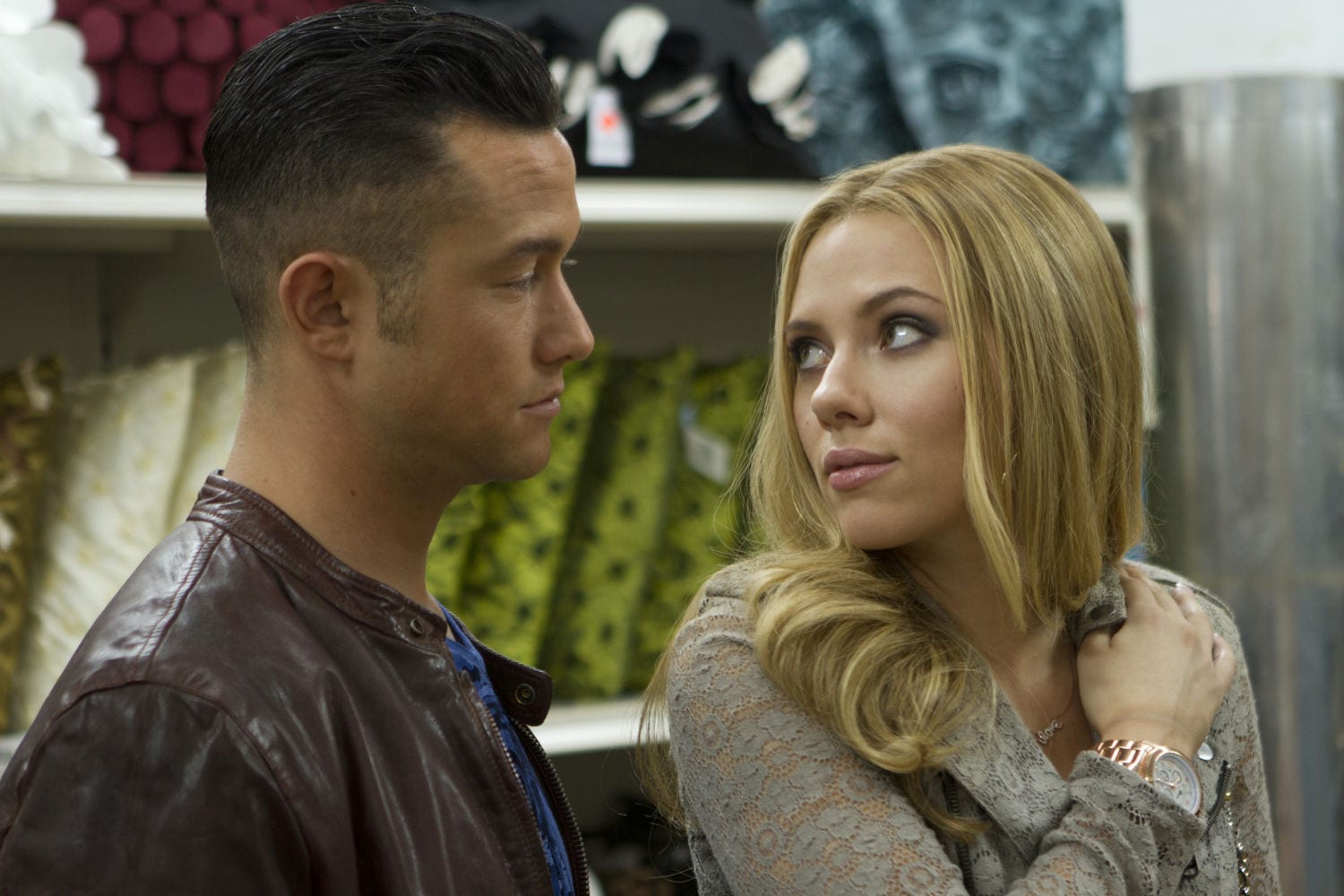Every few years there exists something that we as a culture are going to have to shamefully admit we created and supported once it’s gone. Between the years of 2009-2012, the MTV show Jersey Shore allowed for such “personalities” as The Situation and Snooki to become household names, and portrayed New Jersey culture in such a poor manner that governor Chris Christie publicly spoke out against it.
Yet there are always writers who will take these shameful parts of our popular media and spin them into surreal experiences with odd but somewhat compelling characters. Joining such writers as Chuck Palahniuk and Bret Easton Ellis is actor Joseph Gordon-Levitt in his writing and directorial feature length debut Don Jon.
Written and Directed by: Joseph Gordon-Levitt
Starring: Joseph Gordon-Levitt, Scarlett Johansson, Julianne Moore, Tony Danza
Rated: R
Don Jon tells the story of Jon Martello (Levitt), a young bartender living in New Jersey who adheres to every stereotype a modern day Jersey Shore Italian can. He’s an egotistical , loud mouthed meat head who spends his nights at clubs with his “boys” (John Brown and Jeremy Luke) rating women before “pulling” one and taking her home (confessing every Sunday at church how many women he’s slept with that week.)
This stereotype comes with a catch however. Despite Martello’s promiscuous lifestyle, he actually prefers masturbating to pornography over having sex. This presents a problem when his new, somewhat traditional values girlfriend Barbara (Scarlett Johansson), attempts to break Martello’s habit while getting him to pursue a better job and higher class lifestyle. As Martello attempts to work his porn addiction around his relationship, he is faced with what real intimacy means and comes to terms with why he can find more comfort in videos than people.
The first half of Don Jon invokes the feelings of such movies as American Psycho, using an extremely intimate look at Levitt’s character coupled with narration from the protagonist to explain his thoughts and excuses for the way he acts. Through this we get a glimpse of the many ticks and disorders that Martello lives with. He is clean to the point of obsessive, especially with his laundry and apartment. His issues with his anger show through as he threatens strangers in traffic and nearly comes to blows with his father (Tony Danza) every week at the family lunches. His internet porn addiction is shown most blatantly, as he accounts the multiple times he masturbates each week with what seems like a sense of accomplishment. The pornography in the movie is extremely prominent, with scenes of Levitt masturbating being voyeuristic and uncomfortable for the audience to watch.
The movie takes a strange turn however when it introduces Julianne Moore’s character Ester. Seeing Martello sneaking pornography on his phone during a night class they are both taking, Ester becomes an outside opinion for Martello’s as she is able to offer a more experienced and clear voice into his life and mental problems.
While Moore and Levitt’s relationship in the movie is well acted as well as well paced, the tone change that it causes is jarring and sycophantic. The storyline changes the movie from a dark satire to a 21st century romantic drama in the vein of The Silver Lining Playbook, with both Levitt and Moore’s characters finding comfort in each other for their own issues. This leaves the movie with a strange feeling of inconstancy where it seems to be attempting to show a parallel between artificial intimacy and true love.
Acting wise the cast is great, even while Levitt’s Jersey accent comes off as more of a joke than it seems to mean to. Scarlett Johansson plays a fantastic piece of trash woman while Moore is able to hit the “manic pixie dream girl” role in a way that does not come off as annoying or trivial. Levitt plays his Jon’s addiction, denial, and anger in a way that is both uncomfortable and sympathetic, humanizing an otherwise parodic character. He however, suffers from the same sudden shift of tone the plot does, changing from a borderline psychopath to a wounded lamb within the movie’s extremely short run time and leaving a confusion that doesn’t resolve once the movie is digested.
Don Jon should be rewarded for its script. To take what is one of the worst stereotypes that American pop culture has produced in the last decade and make it into an allegory for the country’s sexually depraved yet emotionally detached culture is something that should exist. Yet the movie’s inability to settle on a tone takes away from its message, leaving lovers of the beginning to hate the ending and vice versa. A brave attempt at cultural commentary that turned into a mess.


Adriana Campos Woods liked this on Facebook.